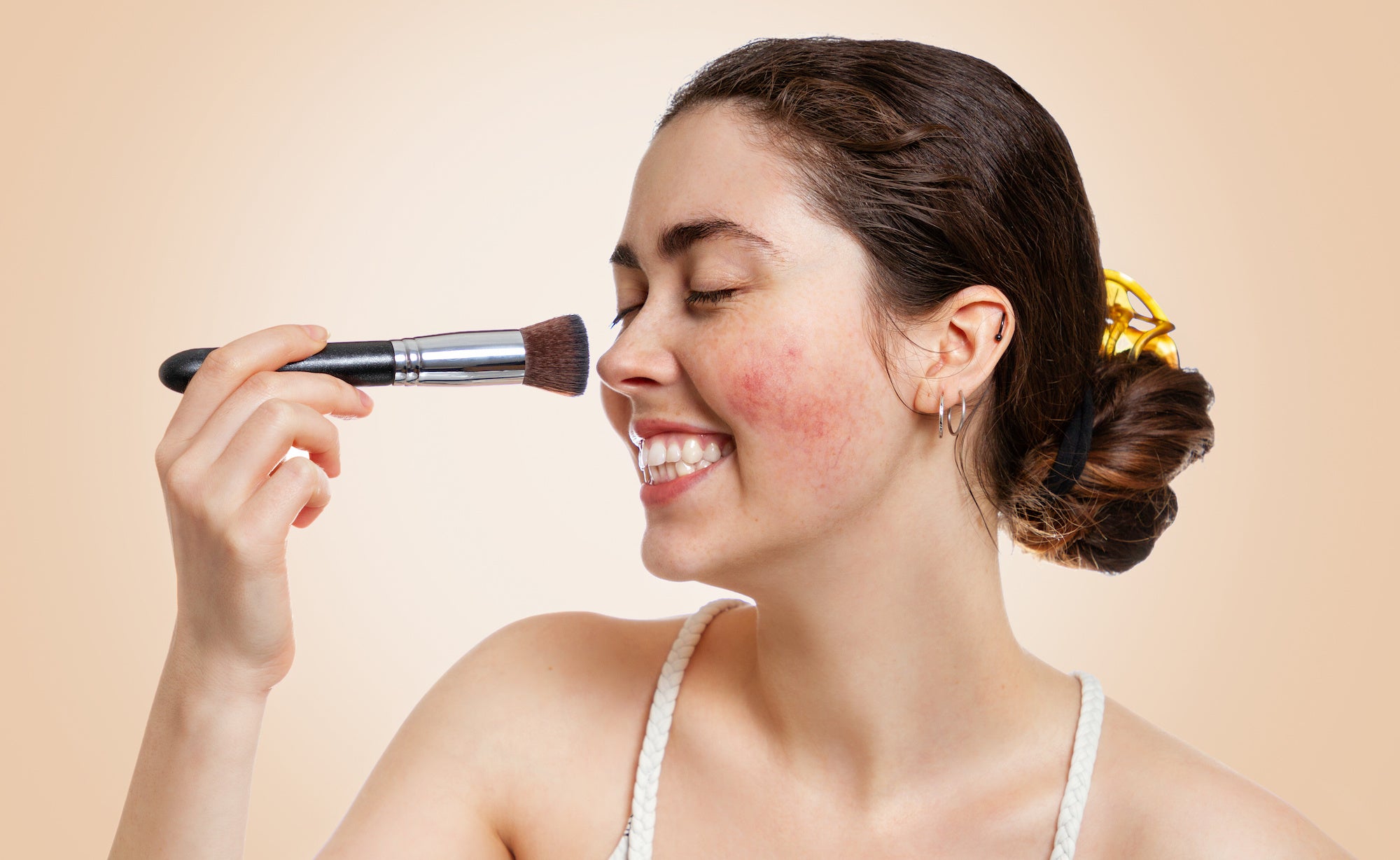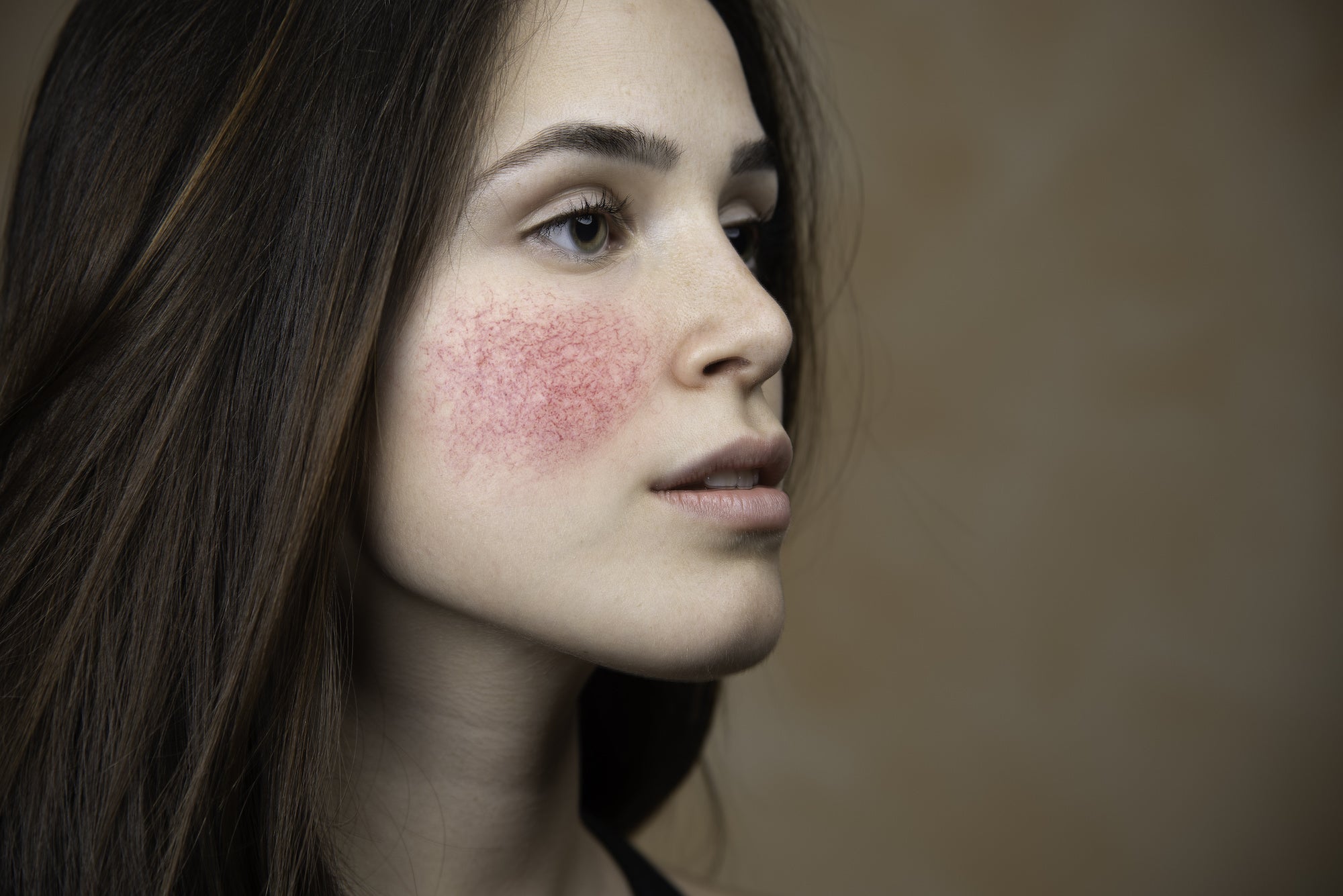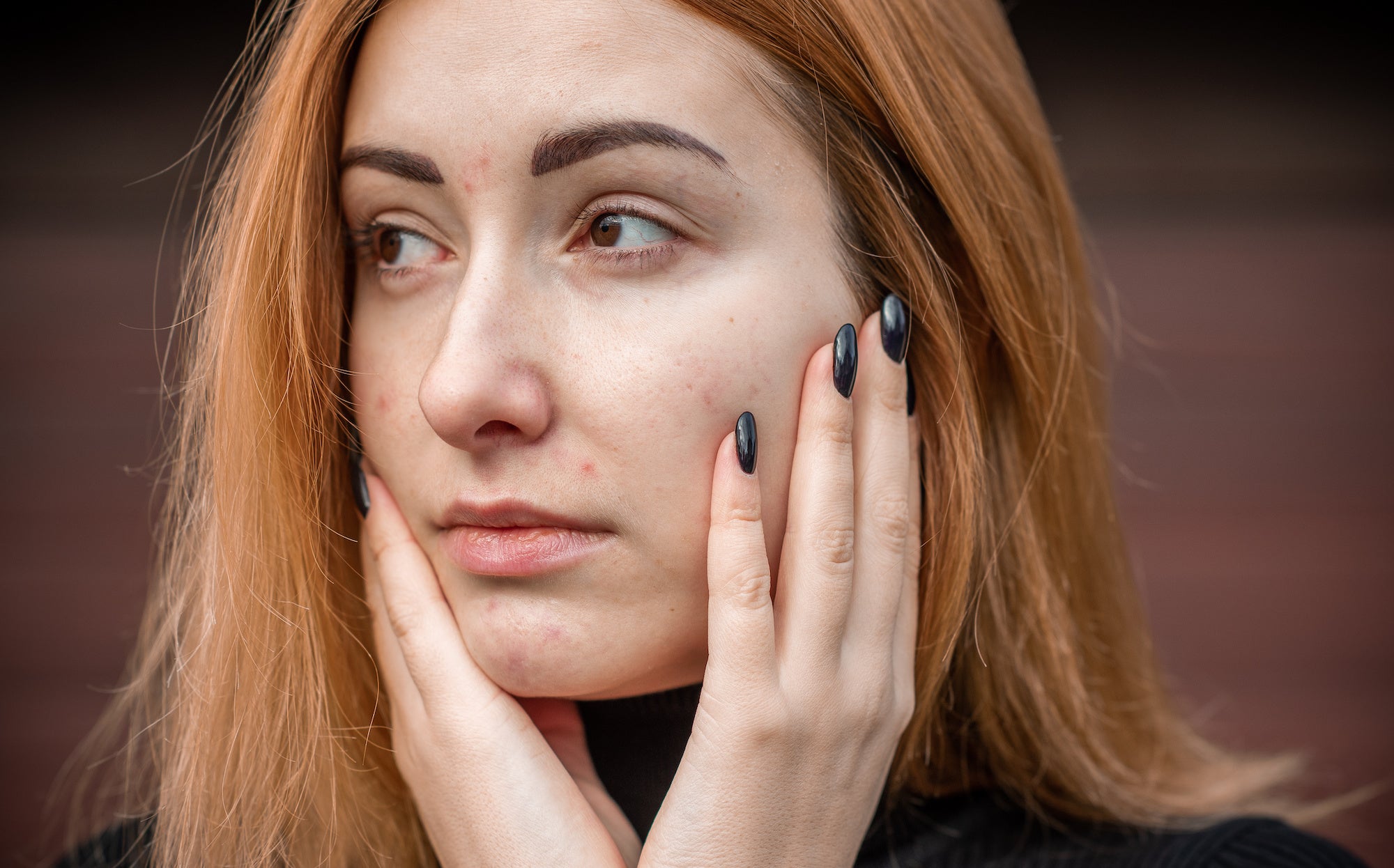
How to Choose Rosacea Safe Skincare & Cosmetics
One of the biggest triggers of rosacea flare-ups is due to applying skincare and cosmetics that cause irritation.
Does your skin burn, itch or sting after applying your skincare or makeup? Do the cosmetics you use cause your skin to become dry or scaly? According to the American Academy of Dermatology (AAD), these are warning signs that you are using the wrong products.
Common Rosacea Irritants
Sensitive skin is one of the most common symptoms of rosacea. By paying attention to the ingredients in skincare and cosmetics, rosacea patients can greatly reduce the amount of irritation they experience on a daily basis.
In surveys conducted by the National Rosacea Society, they found the following ingredients to be the most common irritants for rosacea patients:
- alcohol (66 percent)
- witch hazel (30 percent)
- fragrance (30 percent)
- menthol (21 percent)
- peppermint (14 percent)
- eucalyptus oil (13 percent)
Using hypoallergenic, allergy-tested, and fragrance-free products reduces your risk of triggering rosacea. According to the American Academy of Dermatology, "Fragrances cause more allergic contact dermatitis than any other ingredient."
Here are some of the best expert tips on choosing rosacea-safe products to calm and conceal redness.
Cleansers
Cleansing twice a day is especially important for skin affected by rosacea since it washes away bacteria, debris, and pollutants that can irritate the skin.
Unless you have extremely oily skin, it is best to choose a non-soap cleanser if you have rosacea. Non-soap cleansers are much more gentle and moisturizing. The NRA suggests looking for low-foaming non-soap cleansers that are developed specifically for sensitive skin.
If you have oily skin use a mild soap cleanser, but be cautious about how you wash, avoiding aggressive scrubbing or over-cleansing.
The AAD says to avoiding astringents and toners altogether as they can dry out the skin, exacerbating irritation.
Moisturizers
Moisturizing on a daily basis helps with the stinging, burning, and irritation commonly associated with rosacea. With the right moisturizer, it can also help protect and build back the skin's defective moisture barrier.
Oxygenetix Hydro-Matrix is the holy grail moisturizer for rosacea. Recommended by dermatologists for extremely sensitive skin, Hydro-Matrix hydrates with medical-grade hyaluronic acid and sodium PCA. It also soothes irritated skin and encourages oxygen production in skin cells with patented Ceravitae®.

Foundations & Concealers
When choosing an all-over foundation or concealers for rosacea look for keywords such as hypo-allergenic, non-comedogenic, fragrance-free, and oil-free.
Due to occlusive preservatives found in most foundations and concealers your pores can become clogged, trapping bacteria and debris while making rosacea worse.
Oxygenetix Oxygenating Foundation and Acne Control Foundation both save the day on this one. They meets all requirements for cleanliness and safety measures to gently cover your rosacea. The aloe vera base is a godsend when your skin feels hot and inflamed. To top it off, Oxygenetix Foundations help heal your skin at the same time.
Sunscreen
Sunlight exposure on rosacea-prone skin can be recipe for disaster. Dermatologists recommend applying a gentle, broad-spectrum sunscreen with an SPF 30 or higher each day.
When choosing sunscreens look for physical sunscreens that contain zinc oxide, titanium dioxide, or both since they are the most gentle.
Finding a moisturizer or foundation that also provides an SPF is a great way to minimize the amount of products you are using to prevent irritation.
Shaving
It can be difficult to shave your face without triggering rosacea flare-up.
To avoid harming yourself with a dull razor blade, an electric razor may work best. Avoid shaving creams or lotions that burn your skin.
Aftershaves containing alcohol can be extremely irritating. Instead, use a post-shave balm or moisturizer.
Men love Oxygenetix Hydro-Matrix for preventing ingrown hairs and soothing post-shaved skin. The fragrance-free, non-greasy formula is perfect for maintaining hydrated skin without the look and feel of many moisturizers.
In Conclusion
By avoiding triggers you can get in control of your rosacea and minimize flare-ups.
A board-certified dermatologist can create a customized treatment plan that helps you control your signs and symptoms.
Rosacea Awareness
April is rosacea awareness month and we have joined the #rosaceaawareness movement with The National Rosacea Society, a non-profit organization "dedicated to improving the lives of the estimated 16 million Americans who suffer from this widespread but poorly understood disorder."
To learn more about the symptoms and treatments available check out our blog: Rosacea: Symptoms, Causes, and Treatment. Get checked by a dermatologist if you think you may have rosacea.
For more information on rosacea awareness and what you can do to help visit The National Rosacea Society website.
Follow the conversation online with the hashtag #RosaceaAwareness and help bring awareness so more people get the treatment they need.
Sources:



Leave a comment
This site is protected by hCaptcha and the hCaptcha Privacy Policy and Terms of Service apply.